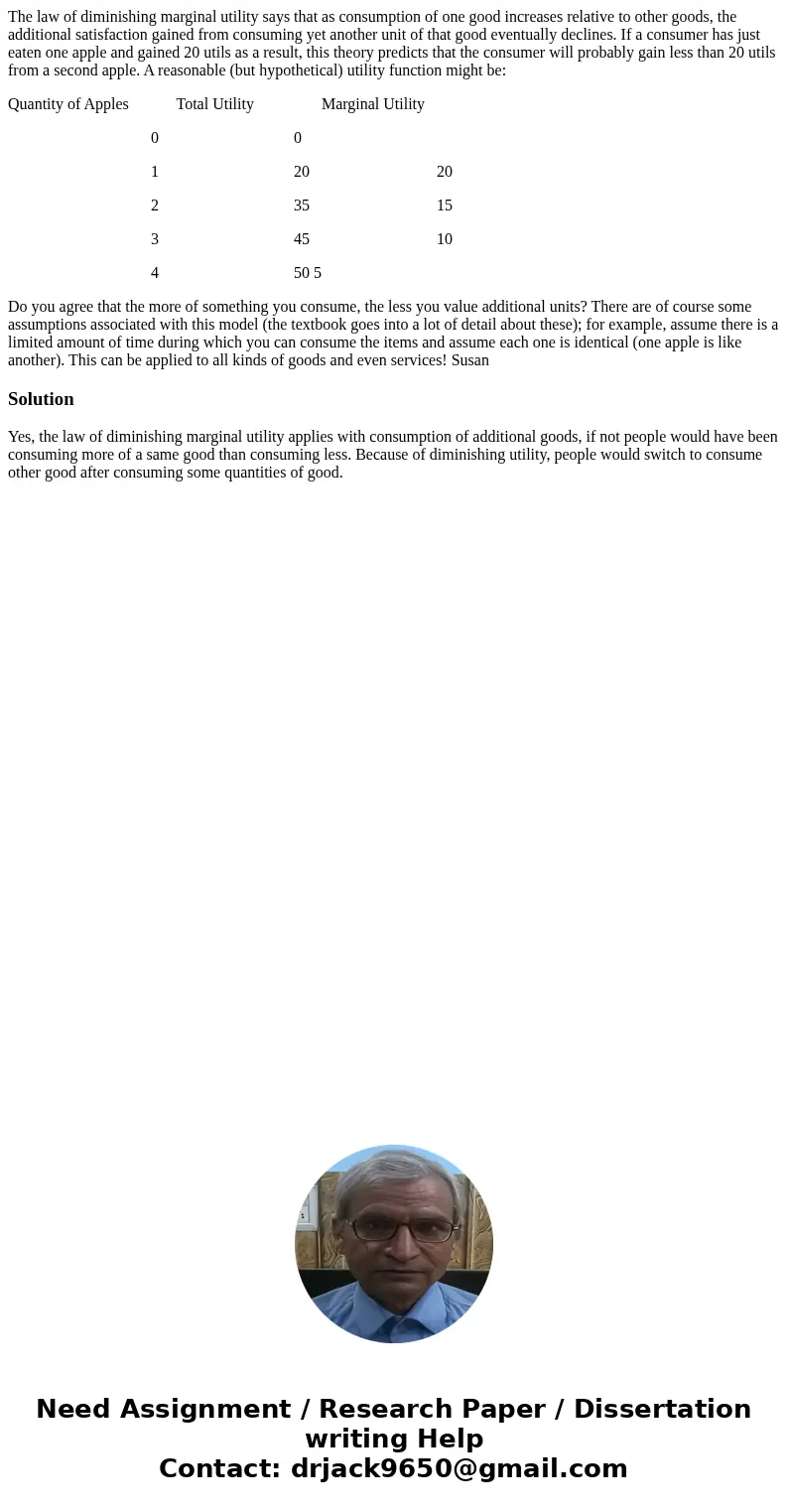The law of diminishing marginal utility says that as consump
The law of diminishing marginal utility says that as consumption of one good increases relative to other goods, the additional satisfaction gained from consuming yet another unit of that good eventually declines. If a consumer has just eaten one apple and gained 20 utils as a result, this theory predicts that the consumer will probably gain less than 20 utils from a second apple. A reasonable (but hypothetical) utility function might be:
Quantity of Apples Total Utility Marginal Utility
0 0
1 20 20
2 35 15
3 45 10
4 50 5
Do you agree that the more of something you consume, the less you value additional units? There are of course some assumptions associated with this model (the textbook goes into a lot of detail about these); for example, assume there is a limited amount of time during which you can consume the items and assume each one is identical (one apple is like another). This can be applied to all kinds of goods and even services! Susan
Solution
Yes, the law of diminishing marginal utility applies with consumption of additional goods, if not people would have been consuming more of a same good than consuming less. Because of diminishing utility, people would switch to consume other good after consuming some quantities of good.

 Homework Sourse
Homework Sourse